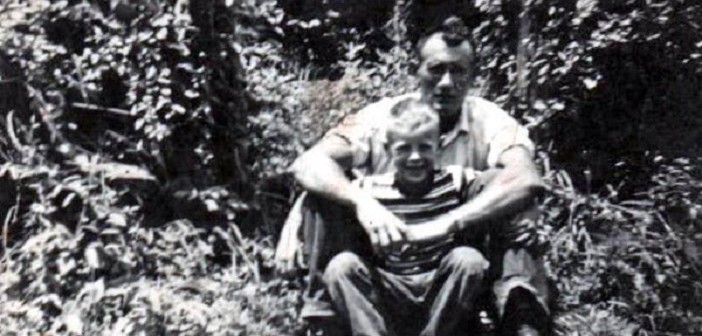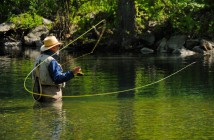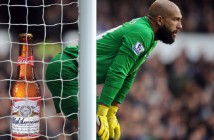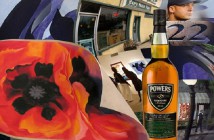The big gentle man is my father. The photograph was taken in 1948 when I was five and he was 32, although he looks older. I had no feeling for history at the time, but he was less than three years removed from the beaches of Normandy and the frozen forests of the Ardennes. Whatever horrors he carried, he bore them in silence.
I think most of us now know that World War II was brutal but the men who served there were from an older, perhaps more noble, stock who did not reveal their feelings openly or easily and most of the first-person oral histories we heard were edited for family telling.
My dad was a combat engineer in the 80th Infantry–the “Blue Ridge Division”–which arrived in Normandy on July 7, 1944 as part of General Patton’s Third Army–fortuitously held back in England on D-Day to decoy the Germans into thinking that the attack would come at Pas de Calais. Patton’s troops led the Operation Cobra breakout from the Normandy beach and over the next 239 days–until the end of the war–rolled across Northern France, Belgium, Luxembourg, the Rhineland and Austria–always on the attack, except for a small detour during the Battle of the Bulge.
With the Germans dug in solidly across the Mosele River from Dieulouard, my dad’s unit built–overnight and under heavy fire–the pontoon bridge that allowed Patton’s tanks to keep driving for the Rhine. They built roads and temporary bridges ahead of advancing infantry units across the Ardennes and Alsace and on into Germany. When the Germans tried to divide the Allies in the Bulge, his unit raced north into Luxembourg to relieve the beleaguered forces. This was one of the worst winters in European history, with nighttime temperatures of more than F15 below zero. The ground was frozen so solidly that soldiers would frequently use a half stick of dynamite to start a foxhole.
I know all this not because he told me but because I found a record of the day-to-day command posts of his unit on the Internet and matched them up with histories of the war. He may have said it was cold. He may have said it was pretty rough going. But, in the stories he told to me, nobody died or even got wounded.
On January 24, 1945, “Near Lellinglen, Luxembourg, Cpl Bowles captured two hostile gun positions before being observed by other detachments of the enemy forces. Then, under severe fire, he captured another emplacement. Greatly outnumbered, he destroyed the guns, cut demolition wires, and retreated under intense hostile fire, thus saving a vital road from destruction.”
I know this only because it says so on a piece of paper inside a box with a medal in it that come into my possession when my mother died. I got a couple of interesting pictures from her, too. One shows a totally wrecked building in a little French town called Pont-au-Masson. On the back, he had scribbled “Save this picture. I was in this building when it blew up.”
The other picture was taken somewhere near Kaiserslautern in March 1945. It shows eight soldiers in fatigues–one of them my dad. On the back it says “This is my platoon. There used to be fourteen of us.”




